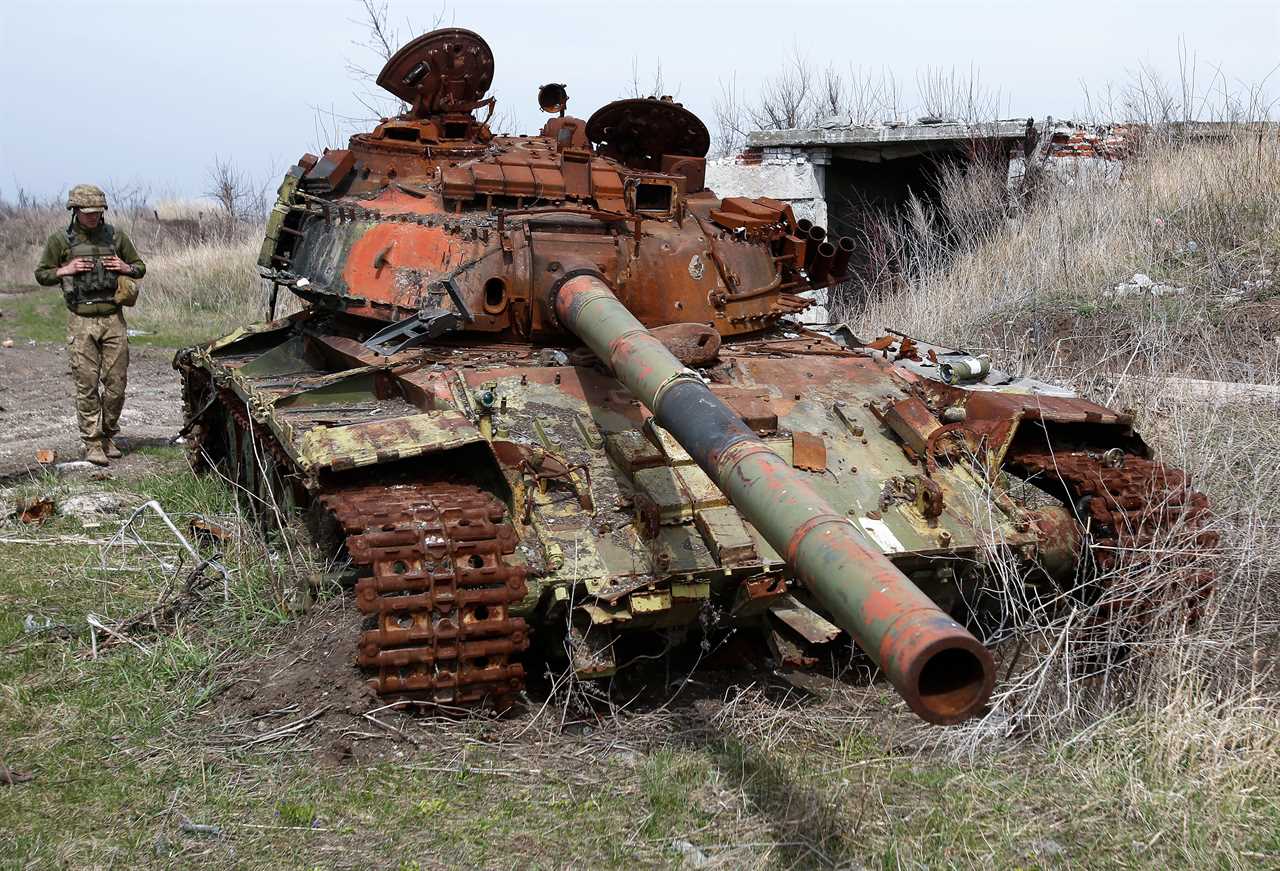Home is where the heart is. Since fighting in the Donbass erupted back in 2014, the residents of Mariupol have had trouble getting home, or dom in Russian, due to a lack of an accessible airport. The conflict between Russia and Ukraine has savaged much of the existing infrastructure across eastern Ukraine, where the on and off again fighting has rendered the airspace around Mariupol International Airport too dangerous for commercial use.
Despite some late spring muscle-flexing by Russia, a respite in fighting has provided Mariupol officials a chance to reopen the airport through some muscle of their own in the form of acquiring Israel’s Iron Dome.
Although the tactical advantages of installing a trusted missile defense system are clear, on closer inspection some sly Ukrainian statecraft is underway that might serve not just to protect an airport, but power up bilateral relations with Israel at the expense of Russia.
It was not so long ago that the bromance between Vladimir Putin and Benjamin Netanyahu was the crux of Russian-Israeli relations. Between deconfliction efforts in Syria and a shared projection of a strong man image on the international stage, relations between both leaders were self-serving and advanced personal gains. Since 2015, both men have met 13 times. In Ukraine, it was never President Volodymyr Zelensky’s objective, nor a possibility, to recreate the intense camaraderie between himself and Benjamin Netanyahu.
Despite the animosity between Kyiv and Moscow, give credit to Netanyahu for keeping both parties happy simultaneously. Netanyahu’s fixation with scolding Iran consistently remained compartmentalized with Putin, and never veered into undermining Moscow and Tehran’s cooperation vis-à-vis degrading Washington. Even more remarkable, was Netanyahu’s ability to remain out of the spotlight when it came to the annexation of Crimea.
Apart from a 2018 travel warning to Israeli citizens, cautioning them that unauthorized visits to Crimea could result in Ukrainian prosecution, Netanyahu, laid low on the issue to avoid any diplomatic blowback. His strategy of joint appeasement seems to have worked as this April, Kyiv floated the idea of Netanyahu acting as a possible intermediary for negotiations between Ukraine and Russia. Although the idea was not flat out rejected by Netanyahu, it failed to get off the ground presumably to avoid overtly angering one side.
Today the troika dynamic is much different. Putin is struggling with Kremlin-installed vaccination hesitation and stubborn domestic discontent. Netanyahu has been relegated to head of the opposition and is facing corruption charges without immunity. Ukraine has survived sharp Russian saber rattling and can count on an August 30th White House meeting between Biden and Zelensky to demonstrate renewed support from America. A new concert of trilateral relations is crystallizing that inherently profits Ukraine.
On the Israeli front current Foreign Minister and Alternate Prime Minister of Israel Yair Lapid, has already demonstrated his intentions, with a multistate diplomatic tour, to recalibrate Israeli foreign relations and decouple the new coalition government from former international priorities. Formally addressing the EU’s Foreign Affairs Council and meeting with NATO Secretary-General Jens Stoltenberg, are some of the starkest signs of this reset. These moves have not gone unnoticed in Ukraine who sees this realignment, and new injection of transatlantic policy by Lapid, as a chance to gradually solidify their value versus Russia with the new Israeli government.
While Zelensky and Prime Minister Denis Shmygal can count on their Jewish heritage to sweeten relations with their counterparts, it should not be confused as a diplomatic asset to overleverage.
When it comes to the potential procurement of the Iron Dome, the eastern Ukrainian city of Mariupol and Ukraine as a whole, should be realistic about their expectations. The technology, if deployed properly, can serve its purpose to defend against short-range projectiles. On the assumption that Russia does not tip the balance of power with the pro-Moscow rebels and provide them larger options than RPGs and short-range projectile systems, the Iron Dome could provide a credible field of coverage that would allow for safe commercial airspace.
The success rate of the Iron Dome, based on the May conflict between Israel and Hamas, makes for some great selling points. The interception rate of the system, according to the Israeli Armed Forces, fell somewhere between 90% and 95%. Although no system can totally neutralize a barrage of missiles, such figures are beyond reproach and represent the gold standard for closed quarter missile defence.

A Ukrainian soldier stands by a damaged tank near a front line position in Avdiivka, near the pro-Russian rebel held city of Donetsk. EPA-EFE//VALERII KVIT
If Ukraine is looking for an independent user’s review, the purchase of two Iron Dome systems by the US Army should serve as proof of customer satisfaction. Another selling point of attraction for cash strapped Ukraine can be found with the fact that the system distinguishes between incoming projects likely to hit populated areas and those that will not. Interceptor missiles are only launched when the project is assessed as dangerous, conserving expensive precious interceptors.
When considering its installation at the Mariupol Airport, the merits of the system are even more compelling when comparing it against the hazardous location of Israel’s Ben-Gurion airport. Mariupol’s airport sits 40km from the delimitation zone established by the Ukrainian Defense Ministry, while Ben-Gurion Airport remains operational despite being a stone through away at 8km from the Gaza buffer zone. The sum of the technical advantages of the Iron Dome is unambiguous, but there are limits.
To be clear, the system would be ineffective in countering an advanced surface-to-air missile like Russia’s Buk that took down MH17 in 2014. If Russia was truly committed to closing the airspace above the airport they could do so with land or navy assets.
For Mariupol residents, going dom, through Israel’s Iron Dome might only be part of the success for Ukraine. While a lot of work remains, Ukraine’s diplomatic home might be expanding and Russia’s dwindling.
Did you miss our previous article...
https://badpoliticians.com/uk-politics/prepare-for-extreme-weather-events-in-advance-of-disaster
 UK PoliticsWorld PoliticsVideosPrivacy PolicyTerms And Conditions
UK PoliticsWorld PoliticsVideosPrivacy PolicyTerms And Conditions
